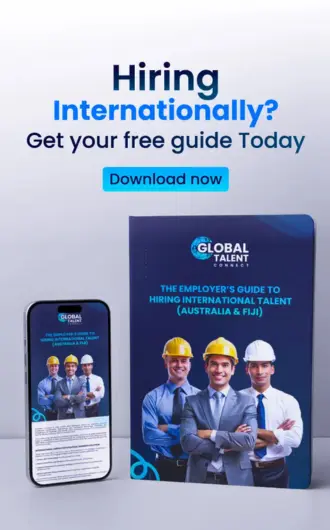Australia is currently facing a significant shortage of skilled workers across many industries, making the need for qualified professionals more urgent than ever. According to the National Skills Commission, the number of jobs facing shortages nearly doubled from 153 in 2021 to 286 in 2022. This situation is pushing companies to look beyond Australia’s borders to fill critical roles, especially in technology, healthcare, and engineering.
Hiring skilled workers from overseas offers access to skills and expertise that may be lacking locally. For instance, 84% of Australian tech leaders are considering hiring overseas talent to address gaps in areas like artificial intelligence and software development. This not only enhances a company’s competitive edge but also raises its global operating standards.
Beyond just skills, using international workforce recruitment tips brings diversity in the team. Teams with varied cultural perspectives are often more innovative and productive. Research shows that companies with diverse and inclusive workplaces are 27% more likely to be profitable and have 30% higher economic margins. This diversity fuels creativity and problem-solving, which are essential for business growth. And effective recruitment platforms like Global Talent Connect make it easier for employers worldwide, especially in Australia, Fiji, and the Philippines, to find and hire skilled workers.
In today’s global economy, hiring skilled workers from abroad gives Australian businesses a strategic advantage. It helps bridge critical skills gaps, drives innovation, and expands international market reach. In this blog, we will provide a detailed guide on strategies for hiring Global Talent, and effective steps to recruit skilled migrants.
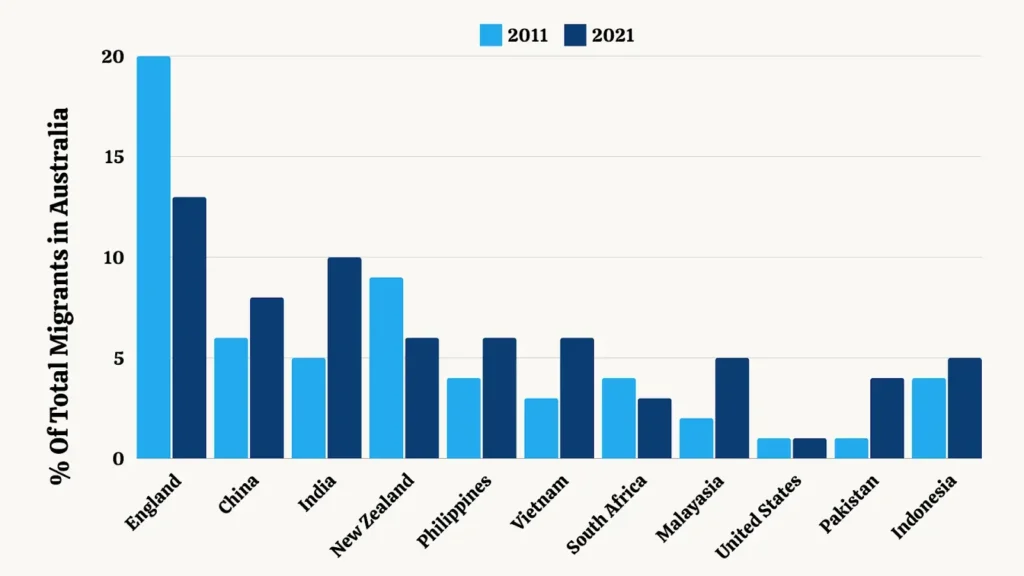
Why Are International Workers Drawn to Australia?
Australia has become an increasingly popular destination for hiring skilled workers from overseas, thanks to a combination of remote job opportunities, a mismatch in skills, and attractive salaries. Let’s break down these key factors:
Rise of Remote Jobs
The shift towards remote work, especially during and after the COVID-19 pandemic, has changed the Australian job market significantly. Many companies now offer remote work options, specially international workforce recruitment tips suggest to allow start the employment without relocating to Australia. In 2022, 46% of Australians worked from home, a figure that, despite dropping to 29% in 2023, remains much higher than before the pandemic. This shift means more Australian companies are open to consider how to hire foreign talent effectively, which offers the benefits of Australian wages without requiring physical presence.
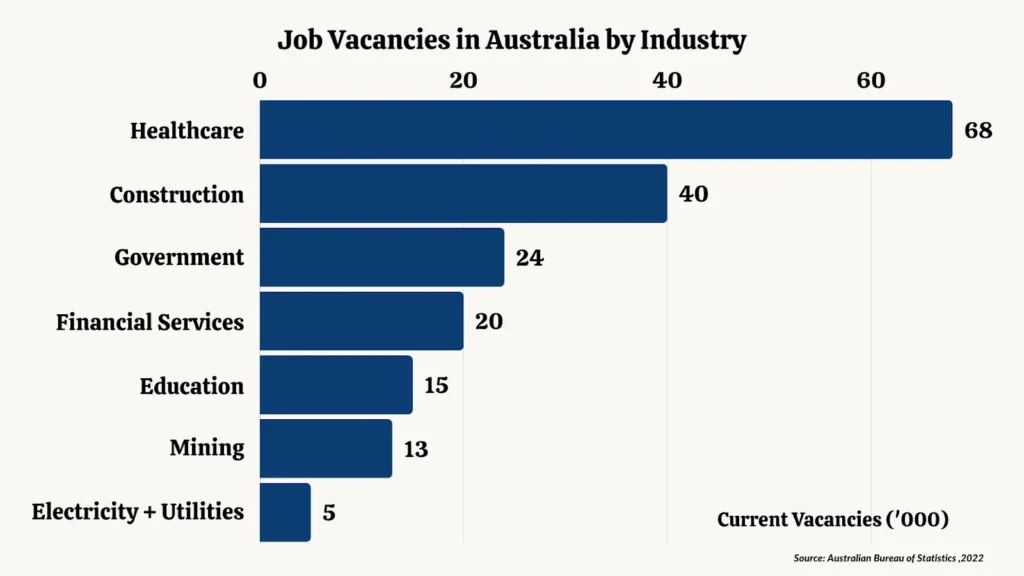
Skill and Talent Mismatch
Australia faces a shortage of skilled workers in critical industries like healthcare, IT, engineering, and skilled trades. Despite efforts to train the local workforce, these gaps persist, driving demand for international workers. A report by the National Skills Commission predicts nearly a million new jobs by 2025, particularly in healthcare, construction, and professional services. However, the local labor market can’t fully meet this demand, making skilled migrants essential. This need is heightened by challenges in recognising foreign qualifications and integrating them into the Australian workforce.
High Pay Scale
Australia offers competitive salaries that attract international workers. The average annual salary is around AUD 90,800, with full-time workers earning about AUD 1,838 per week as of August 2023. Alongside this, Australia provides favorable working conditions, including paid leave, superannuation, and a high minimum wage of AUD 23.23 per hour as of July 2024. The recent 3.75% increase in the minimum wage by the Fair Work Commission also ensures that wages keep up with the cost of living, further making Australia an appealing choice for workers from countries with lower pay scales, making Global Talent Connect even more relevant.
Understanding the Benefits
As Australia grapples with a significant skills shortage, many businesses are finding that hiring skilled workers from overseas is a practical solution. Bringing in skilled workers from overseas not only helps to address immediate labor gaps but also offers long-term benefits, such as supporting global expansion and promoting diversity and inclusion within the workplace.
Skills Shortage
Australia’s skills shortage is becoming increasingly urgent. According to the National Skills Commission’s 2022 report, 286 occupations are currently experiencing shortages, a sharp increase from 153 in 2021. This shortage is particularly severe in key sectors like healthcare, technology, engineering, and trades, where the demand for qualified professionals far exceeds the available local talent.
Hiring international professionals can bridge these gaps, particularly in specialized fields like artificial intelligence, data analysis, and cybersecurity, which are crucial for driving innovation in the rapidly expanding technology sector. A report by PwC Australia highlights that skilled migrants play a vital role in the economy, holding 26.3% of all jobs in the country as of 2022. By bringing in international talent, businesses can ensure that critical roles are filled, allowing them to stay competitive and maintain smooth operations.
Global Market Expansion
Beyond filling local skills gaps, hiring international talent is a strategic move for businesses with global aspirations. Employees from different countries bring unique insights into their home markets, including an understanding of local business practices, customer preferences, and regulatory landscapes.
For instance, an Australian company aiming to expand into the Asia-Pacific region could benefit greatly from hiring professionals from that area. These employees can provide valuable local knowledge, helping the company develop effective market strategies, build strong relationships with local partners, and navigate cultural differences with ease.
Additionally, international workforce recruitment tips often bring global networks that can open doors to new opportunities for collaboration and trade, making it easier for Australian businesses to enter and compete in new markets.
Diversity and Inclusion
Diversity and inclusion are now seen as essential to business success. Companies that prioritise these values tend to foster innovation, improve employee satisfaction, and perform better financially. Research from McKinsey & Company shows that companies with high ethnic diversity are 39% more likely to outperform their less diverse peers in profitability.
How to hire foreign talent effectively contributes to a more diverse workforce, bringing together a range of perspectives, experiences, and cultural backgrounds. This diversity can lead to more creative problem-solving and innovation, resulting in better products and services. Diverse teams are also better equipped to understand and serve a wide range of customers, enhancing customer satisfaction and loyalty.

In Australia, companies that embrace diversity are reaping significant rewards. Deloitte’s research indicates that businesses with inclusive cultures see 27% higher revenue per employee and 30% higher profit margins compared to those without such practices. Additionally, a diverse and inclusive workplace can boost a company’s reputation, making it more attractive to top talent and reducing employee turnover.
Guide to hire international workers
Australia’s skills shortage has led businesses to hire international talent, which helps fill labor gaps and brings long-term benefits like global market insights and greater workplace diversity. This approach supports business growth, innovation, and competitiveness while fostering an inclusive work environment that attracts top talent.
Identifying Skill Gaps in Your Organisation
Before hiring internationally, it’s essential to identify the specific skill gaps within your organisation. Like many other countries, Australia is currently facing a shortage of skilled workers in areas like IT, healthcare, engineering, trades, and emerging technologies. These shortages can hinder growth and innovation, making it crucial to assess your workforce’s current capabilities.
A thorough skills assessment involves reviewing your existing talent to find areas where key expertise is missing. This means looking at your current and future business needs, considering industry trends, and forecasting the skills required to remain competitive. By identifying specific deficiencies like in technical skills, specialized knowledge, or leadership, one can develop focused strategies for hiring global talent to attract the right international talent. This ensures that new hires can effectively fill these gaps and contribute to your company’s long-term success.
Immigration and Visa Requirements
Australia’s immigration system can be a bit complicated, especially when it comes to hiring international workers from overseas. There are several visa options available, and understanding these is essential to ensure your hiring process complies with Australian law.
- Temporary Skill Shortage (TSS) Visa (Subclass 482): This visa allows Australian employers to sponsor skilled workers for jobs they can’t fill locally. Depending on the occupation and the worker’s skills, this visa can be granted for up to four years.
- Employer Nomination Scheme (ENS) Visa (Subclass 186): The ENS visa is for employers who want to sponsor skilled workers for permanent residency. It’s ideal for workers who have been employed in Australia for at least three years on a TSS visa or have a job offer from an Australian company.
- Regional Sponsored Migration Scheme (RSMS) Visa (Subclass 187): This visa is aimed at employers in regional Australia who need to sponsor skilled workers for permanent residency. It’s specifically designed to help address labor shortages in these regional areas.
- Global Talent Visa Program: This program is targeted at highly skilled individuals in sectors like fintech, medtech, and quantum computing. It provides a fast-tracked pathway to permanent residency for workers who can contribute significantly to Australia’s innovation and economic growth.
Navigating these visa options requires a good understanding of the eligibility criteria, application processes, and timelines. Working with immigration experts or using government resources or expert recruitment platforms like Global Talent Connect can make this process smoother and ensure you meet all the necessary requirements.
Relocation Support
Relocating to a new country can be challenging for international workers. From handling legal paperwork to adjusting to a new culture, the process can be overwhelming. To attract top global talent and ensure they thrive in your organisation, offering comprehensive relocation support is crucial. This not only makes your job offer more attractive but also helps new hires settle in smoothly, leading to higher job satisfaction and long-term retention.
Visa and Immigration Support
One of the biggest hurdles for international workers is navigating the visa and immigration process. By providing dedicated assistance with visa applications, legal documentation, and compliance with Australian immigration laws, you can ease a lot of the stress and uncertainty for your new hires. Strategies for hiring global talent might include guiding them through the visa process, explaining their legal rights and obligations, and ensuring that all paperwork is completed correctly and on time.
Housing and Settling-In Services
Finding a place to live in a new country while starting a new job can be overwhelming. Employers can help by assisting international hires in finding suitable housing that meets their needs. Providing information about local amenities like shopping centers, public transportation, schools, and healthcare facilities can make the settling-in process smoother. Offering temporary housing or covering relocation costs can also significantly ease the transition.
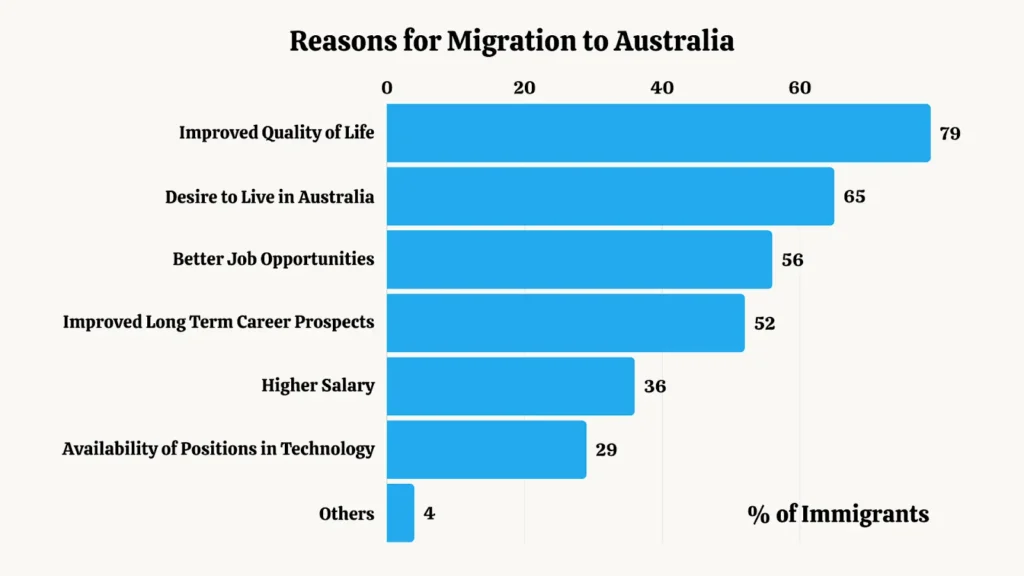
Family Support
For those relocating with families, the move can be even more complex. To attract and retain international employees with families, consider offering support services like assistance with school enrollment for children, help finding quality child care, and resources for spousal employment opportunities. Showing that you care about the well-being of their entire family can make a big difference in their decision to join and stay with your company.
Cultural Orientation
Adjusting to a new cultural environment is another key aspect of successful relocation. Steps to recruit skilled migrants employers include help by offering cultural orientation programs that explain Australian workplace norms, social customs, and business etiquette. Providing language training and workshops on local traditions can help employees feel more at home and reduce the chances of cultural misunderstandings.
Compliance with International Labor Laws
When hiring skilled workers from overseas in Australia, it’s crucial to comply with the country’s labor laws, which are designed to protect the rights of all employees. Here are the key areas to focus on:
- Fair Work Act Compliance: Make sure all employees, including those from overseas, are covered by the Fair Work Act. This law regulates important aspects like wages, working hours, leave entitlements, and conditions for termination.
- Occupational Health and Safety (OHS): Employers must follow OHS regulations to ensure a safe workplace. This involves conducting risk assessments, providing necessary training, and supplying the right equipment to keep everyone safe.
- Anti-Discrimination Laws: It’s against the law to discriminate against employees based on race, ethnicity, religion, gender, or nationality. The international workforce recruitment tips should be inclusive and free from any bias to ensure fairness for all.
- Superannuation: Just like with local employees, employers are required to make superannuation contributions for international workers. This ensures that everyone receives the retirement benefits they are entitled to.
Staying up-to-date with changes in labor laws is essential to avoid legal issues and to create a fair and respectful workplace for all employees.
Attractive Job Offer
To attract top international talent, it’s essential to create a job offer that really stands out. This goes beyond just offering a good salary; you need to put together a complete package that appeals to candidates from around the world.
- Competitive Salary: Start by researching average salaries for the roles you’re hiring for in different countries to ensure your offer is competitive. You might also consider adding performance bonuses or profit-sharing options to make your offer even more attractive.
- Benefits Package: Provide benefits that meet the needs of international workers, like health insurance, help with relocation, and flexible working conditions. These extras can make a big difference in attracting the right talent.
- Career Growth: Make sure to highlight opportunities for career progression, training, and professional development. International candidates often look for roles where they can grow and advance over the long term.
- Work-Life Balance: Australia is known for its strong work-life balance, so emphasize this in your job offer. Offer flexible working hours, options to work remotely, and generous leave policies to show that you value a healthy balance between work and personal life.
Cultural Fit and Diversity
To attract top international talent, it’s important to create a standout job offer that goes beyond just a good salary. Start by ensuring your salary is competitive by researching averages in different countries, and consider adding bonuses or profit-sharing options. Offer a benefits package that includes health insurance, relocation assistance, and flexible work options to appeal to international candidates. Highlight opportunities for career growth, training, and development, as many candidates seek long-term advancement. Lastly, emphasize Australia’s strong work-life balance by offering flexible hours, remote work options, and generous leave policies to show you value a healthy work-life balance.
Using Global Recruitment Platforms
Global recruitment platforms are key to making this process easier by providing tools and services that simplify international hiring. These platforms help employers reach a broader range of candidates, handle cross-border recruitment complexities, and ensure compliance with local labor laws.
Benefits of Global Recruitment Platforms
- Access to a Global Talent Pool: These platforms allow companies to find the best talent worldwide, which is especially important in industries facing skill shortages.
- Simplified Hiring Process: Advanced search tools, candidate screening features, and automated workflows on these platforms reduce the time and effort needed to fill positions, helping companies stay agile in their strategies for hiring global talent.
- Compliance and Legal Support: Hiring internationally involves dealing with different legal requirements. Many platforms offer compliance support, helping employers adhere to local labor laws.
- Cost Efficiency: By managing recruitment, payroll, and HR functions through one platform, companies can reduce administrative costs and improve efficiency.
Types of Platforms
- LinkedIn: A widely used professional networking site, LinkedIn offers global reach with a vast database of professionals. Employers can post jobs, filter candidates by location and skills, and connect directly with potential hires.
- Indeed: A global job board where employers can post jobs in multiple countries. It offers tools for screening candidates, managing applications, and tracking job post performance.
- Remote.com: This platform focuses on hiring remote workers worldwide, offering tools for compliance, payroll, and benefits management, perfect for companies with remote teams.
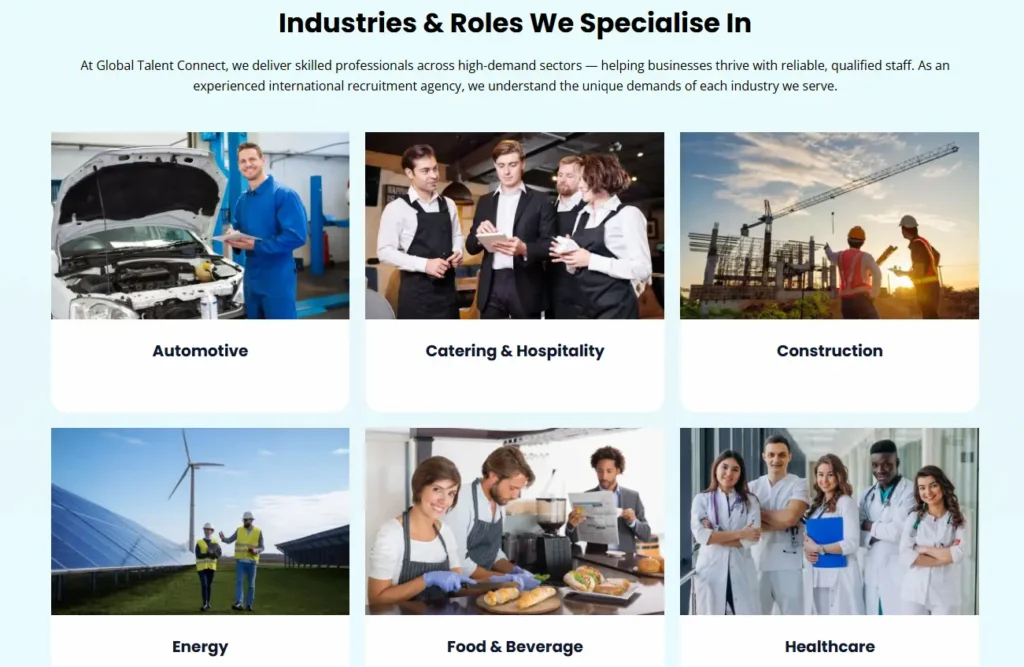
How Global Talent Connect Helps
Global Talent Connect (GTC) is an innovative platform designed to help address skill shortages by linking skilled professionals with employers in need. It offers a variety of specialized services that make it an essential tool for recruitment agencies and businesses.
Key Features of Global Talent Connect:
- Enhanced Candidate Sourcing: Global Talent Connect has a vast global network and database of skilled professionals, especially those trained in emerging technologies and digital intelligence. This ensures that employers have access to a highly qualified talent pool.
- Industry-Specific Solutions: GTC provides tailored recruitment solutions for various industries, including healthcare, technology, and engineering. This industry-focused approach helps employers find candidates with the right skills and experience for their specific needs.
- Upskilling and Reskilling: Global Talent Connect offers upskilling and reskilling services to keep candidates competitive in the rapidly evolving job market. This adds value for recruitment agencies looking to offer more to their clients.
- Technology-Enabled Recruitment: Using AI, data analytics, and other technologies, GTC enhances the recruitment process, reducing time-to-hire and improving the quality of candidate matches.
- Global Reach with Local Expertise: GTC operates training centers in Bangladesh, the Philippines, and Vietnam, providing job-specific training, cultural acclimatization, and language support to ensure smooth integration into new roles.
- Strategic Partnerships: GTC partners with recruitment agencies, offering exclusive access to trained talent and specialized services, helping agencies remain competitive in the global market.
With 36% of assessed occupations in Australia facing shortages in 2023, platforms like GTC are crucial in connecting employers with the skilled talent they need.
Hiring international workers is no longer just an option to fill skill gaps; it’s a necessity, especially for advanced countries like Australia. With a growing economy and a shortage of skilled professionals in key industries, companies need to look beyond local talent to stay ahead. International workers bring valuable expertise, fresh ideas, and diverse perspectives, which help drive innovation and business success. Whether in tech, healthcare, or engineering, their contributions are essential.
For more advice and tips on hiring skilled workers from abroad, Global Talent Connect is here to help. Their platform simplifies the process, ensuring you find the right talent for your business. Visit Global Talent Connect website for expert guidance and support in building a diverse and forward-thinking team.

